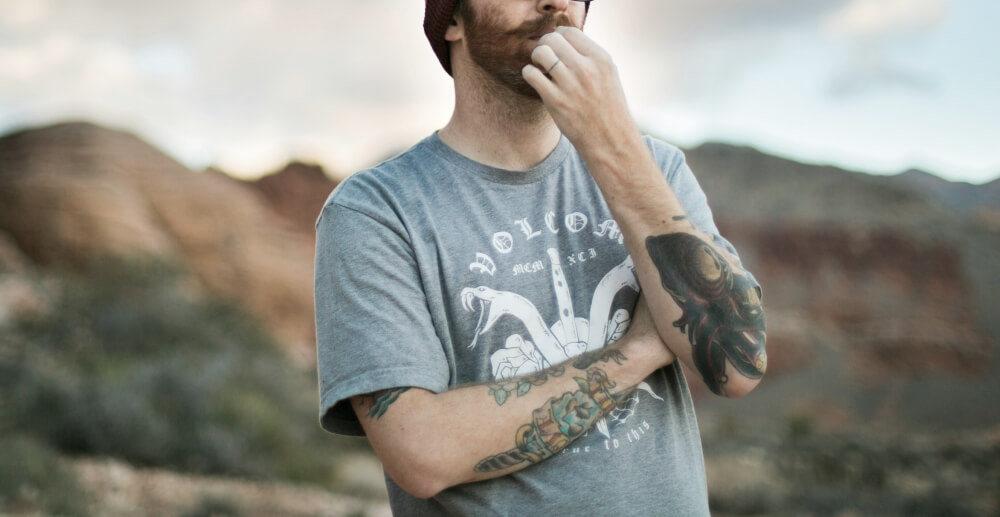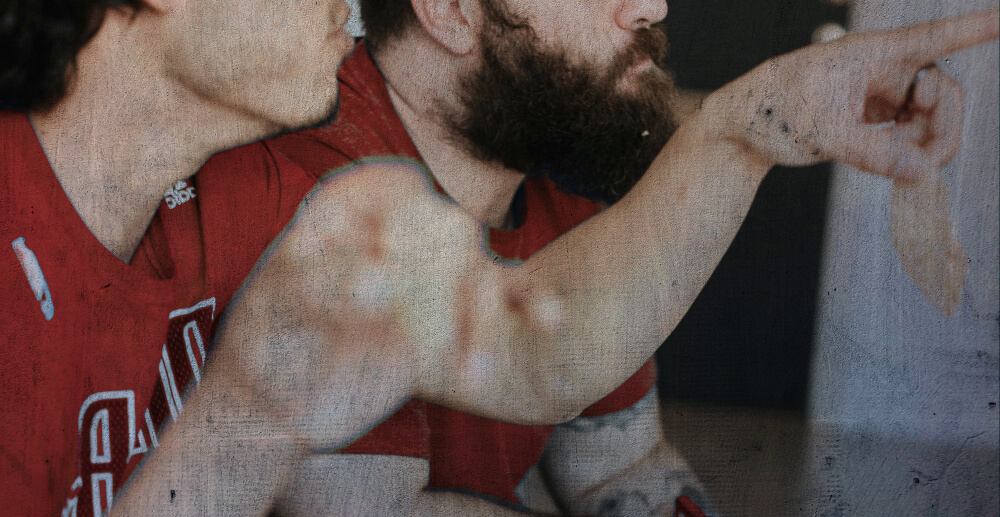I struggled with acceptance and patience.
When I was struggling to get sober, people told me that I needed to surrender. All I could picture when they said that was a white flag, as well as one of those trust exercises where you’re instructed to fall back into the arms of people you may have just met at some Trust-Building self-empowerment weekend event. It also just meant confusion. ‘How,’ I wondered, ‘are you supposed to surrender? What does that even mean?’
Alarmingly perhaps, after more than 16 years of sobriety, that’s something I’m still learning.
I keep having to learn to surrender
The first surrender, the one where I quit drinking and doing drugs, was actually the easiest one. I was so emotionally beat up, so depressed and hopeless, so willing to try anything, that I followed what some sober and happy-seeming people suggested—go to meetings, get comfortable with praying, write some things down, and don’t drink or use—and quite quickly discovered that my desire to drink and use drugs was gone. It wasn’t unlike when I’d had my tonsils removed at the age of 20; the part of me that had once been an essential element of my makeup, the part that craved and needed to do drugs or drink, was gone. And it’s pretty much stayed gone.
But oh, those other surrenders. See, I’m still an addict; I just don’t do drugs anymore. This means that the same part of my brain that got me to hole up in my apartment with only cats and cocaine for company is still in me. That part of my brain is irrational and obsessive. It wants what it wants when it wants it. It believes, on a certain level, that if it doesn’t get what it wants when it wants it, it will not survive.
This isn’t always fantastic in a world that demands patience and acceptance—a world that only rarely gives even the luckiest of us what we want when we want it.
And so I’ve had to learn to surrender everything—my career and relationships as well as my regular old day-to-day desires. It means I have to go after what I want with the same zeal that got me speeding over to the dealers in Skid Row, but I have to accept that I’m not going to be delivered what I want as quickly as I was handed a packet of cocaine for my $60.
And so I’ve had to learn to surrender everything—my career and relationships as well as my regular old day-to-day desires.
This has been my hardest lesson—and alas one I’ve had to learn over and over and over again. As people in recovery circles say, many alcoholics seem to have a built-in forgetter. I’ve also heard that the “ism” in “alcoholism” stands for “Incredibly Short Memory.” In other words, my greatest epiphanies can feel just like Groundhog’s Day—something I realize only to forget entirely the next time I most need to remember it.
I’ve learned to think of surrender differently
And so, when I recently stumbled on the wisdom of Sir David Hawkins, a psychiatrist and spiritual teacher who wrote extensively about enlightenment and self-realization, I was struck by a phrase that hasn’t left me since I first read it: We get what we want when we stop insisting on it. To me, that means that it’s okay—great, even—to want things. It’s even better to go after them. But if we cling to the results—if we feel like we need what we want to happen or we’re not going to be okay—we’re actually preventing ourselves from getting it. People say that the universe doesn’t know the difference between a worry and a desire and I believe that. And look—if we want something so badly that we feel like we may die if we don’t get it, it’s safe to say this has us worried.
People say that the universe doesn’t know the difference between a worry and a desire and I believe that.
So I’ve learned (at least sometimes) to wear my desires loosely and to not abandon them just because I’m not hand delivered what I want. Ironically perhaps, whenever I do that, I seem to get what I want. This is so contrary to what I was taught growing up—which was basically that I needed to win at whatever cost and sue anyone who got in my way—that I need constant reminders. As it happens, the universe provides these all the time—so long as I remember to see it that way.
Still, you’ll never catch me falling backward to be caught in the arms of near strangers. My trust only goes so far.









